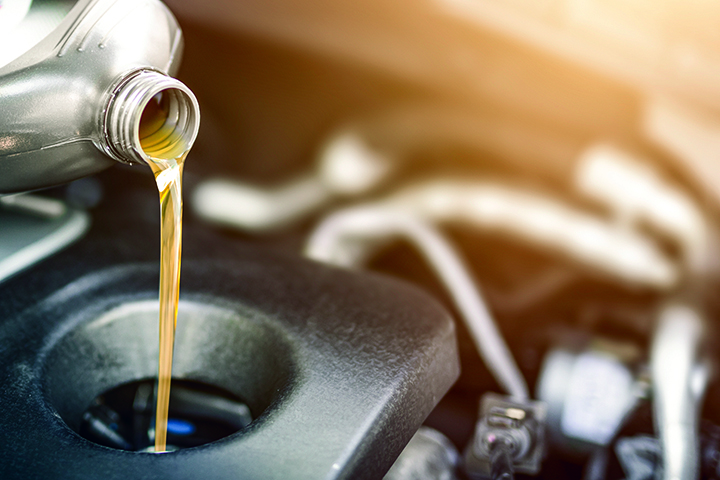Truckers are often bombarded with advertising for fuel, oils and other products. More advertising sells oil and fuel additives that, some say, can add unnecessary expense to a trucking operation.
To clear up some of the confusion, we spoke to Rob Howes, executive vice president at Howes Products. The company was started over 100 years ago by Wendell V.C. Howes, who marketed lubricants and additives to shops in the Rhode Island area.
Today, the company markets a variety of petroleum-based additives designed to improve the performance of cars and trucks.
“Tolerances are so tight in today’s diesel engines, sometimes down to 1 to 3 microns,” Howe explained. “That makes internal diesel injector deposits more resilient to treatment.”
Those injector deposits can cause improper spray into the cylinder, Howes said, resulting in incomplete burning of the fuel and helping cause carbon buildup in the particulate filter — and adding to problems later.
Howes recommends using a quality fuel additive to help keep injectors clean. He suggests Howes Defender fuel additive, which contains a proprietary detergent formula as well as lubricants to help replace the qualities of the sulfur that has been removed from fuels. But, he says, that’s just a start.
The ultra-low sulfur diesel (ULSD) sold today helps reduce emissions, but at a cost. Sulfur is a lubricant that helps keep valves and other moving parts functioning smoothly. A quality fuel additive replaces the lubricity lost when sulfur is removed.
There’s another consideration, too. A number of states are mandating that biodiesel be blended with petroleum-based fuels. Minnesota, for example, requires a minimum of 5% biodiesel year round, increasing to 20% during summer months.
“Biodiesel is a great lubricator, but it comes with some unique properties,” Howes said. “It attracts water, and it grows bacteria.” That bacteria can form a black film that’s noticeable in fuel tanks — and can cause flow issues throughout the system. “If you have an existing problem, you’ll need a biocide to get rid of it,” he said. “But if your additive contains a bacteria preventative, you can keep the problem from happening.”
Biodiesel also contains fats that replace the paraffin found in petroleum-based diesel. Both kinds of diesel can cause gelling problems, but biodiesel can begin gelling at a much higher temperature, as high as 50 degrees, according to Howes. The result can be a plugged fuel filter in the middle of summer.
As most drivers know, water in fuel can be a problem, especially in winter months. Small ice particles can accumulate in fuel lines, preventing fuel flow and shutting down an engine. Quality additives contain ingredients that eliminate water from the system, and getting rid of water in your truck’s fuel can help improve fuel mileage.
“There are other savings, too,” Howes said. “The cost of repairs, such as replacing fuel injectors, can be devastating to a small business and there’s a cost to the down time as well.”
Some drivers are concerned that use of fuel or oil additives could void the manufacturer’s warranty. For that reason, Howes insisted that quality is a key factor.
“Use of our products does not void any manufacturer’s warranty,” he said. “Whatever they use, drivers should make sure it’s a quality product.”
Howes stressed that additives aren’t just for newer engines, pointing out the number of glider kits and pre-2000 engines on the road today. Quality additives can help them as well.
“Those 1995 engines have looser tolerances, but they’re still susceptible to carbon buildup,” he noted. “Plus, they were built to run on the low sulfur diesel that was available then, not the ULSD we use now.”
Older engines weren’t designed for the high-quality synthetic oils that are available today, either. Howes recommends using a quality oil additive to boost the cleaning properties of the petroleum-based oils often used in older equipment.
“Additives should contain the same detergents and protectants that come in a quality synthetic oil,” he said. “They provide a boost and help replace the ingredients lost over time.”
He cautions that additives that don’t contain quality ingredients, when added to the engine, can actually dilute the detergents and other agents present in the oil.
Additives can be an excellent investment that help keep expensive equipment running smoothly and keep repair expense — and downtime — to a minimum. Drivers who work hard to take care of their equipment should consider quality additives to help keep them running — and earning.
Cliff Abbott is an experienced commercial vehicle driver and owner-operator who still holds a CDL in his home state of Alabama. In nearly 40 years in trucking, he’s been an instructor and trainer and has managed safety and recruiting operations for several carriers. Having never lost his love of the road, Cliff has written a book and hundreds of songs and has been writing for The Trucker for more than a decade.











Great article. I’m old school. Love the old Cats an oldDetroits. That’s what I started on. All this new stuff gives us nothing but headaches and empty pockets.